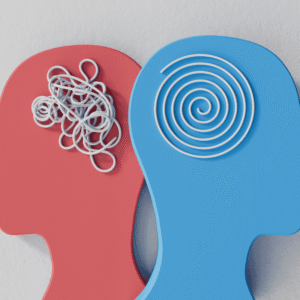In today’s fast-paced digital world, maintaining mental health has become just as important as physical well-being. With rising stress levels, constant screen exposure, and growing social isolation, people are beginning to recognize the deep link between lifestyle choices and mental health.
Modern lifestyle trends are often driven by hustle culture, long work hours, and lack of rest. While productivity is praised, burnout is becoming increasingly common. Experts across the globe are encouraging individuals to slow down, practice mindfulness, and build sustainable habits that support emotional and psychological wellness.

Sleep, nutrition, exercise, and social connections are the four key pillars of a mentally healthy lifestyle. Studies have shown that poor sleep patterns directly impact mood and decision-making. Similarly, diets high in processed foods are now being linked to increased anxiety and depression. A balanced diet rich in whole foods, regular physical activity, and meaningful relationships have been proven to significantly boost mental well-being.
Another major lifestyle shift is the rising use of digital detox practices. As people become more aware of the impact of excessive phone and social media use, many are now opting for short digital breaks, screen-free weekends, or time-blocking techniques to protect their peace of mind. Reducing digital noise has shown measurable improvement in focus, creativity, and overall mental calmness.
Mindfulness and meditation are also gaining popularity, not just as spiritual practices, but as science-backed tools to manage stress and increase emotional regulation. Breathing techniques, journaling, and guided meditations are now widely accessible and recommended by both therapists and life coaches.
Workplaces are also evolving. Employers are now more open to flexible work hours, mental health days, and employee wellness programs. In fact, mental health benefits are now being viewed as essential, not optional, especially among younger professionals. This shift has also encouraged people to seek therapy or counseling without stigma, promoting a healthier mindset across communities.
On a social level, awareness campaigns and mental health education are helping break long-standing taboos. From schools to social media platforms, conversations around anxiety, depression, self-care, and emotional intelligence are becoming more normalized.
In 2025, the focus is not just on avoiding illness but on building mental resilience. The idea is to create a lifestyle that supports peace, purpose, and presence. Whether it’s through morning walks, healthy meals, therapy sessions, or simply saying “no” when needed, people are learning that small changes lead to big transformations.
Ultimately, mental health is not a destination—it’s a daily practice. And lifestyle is the foundation that supports it.
